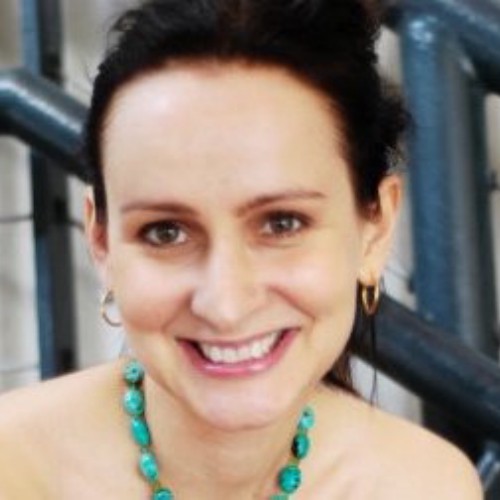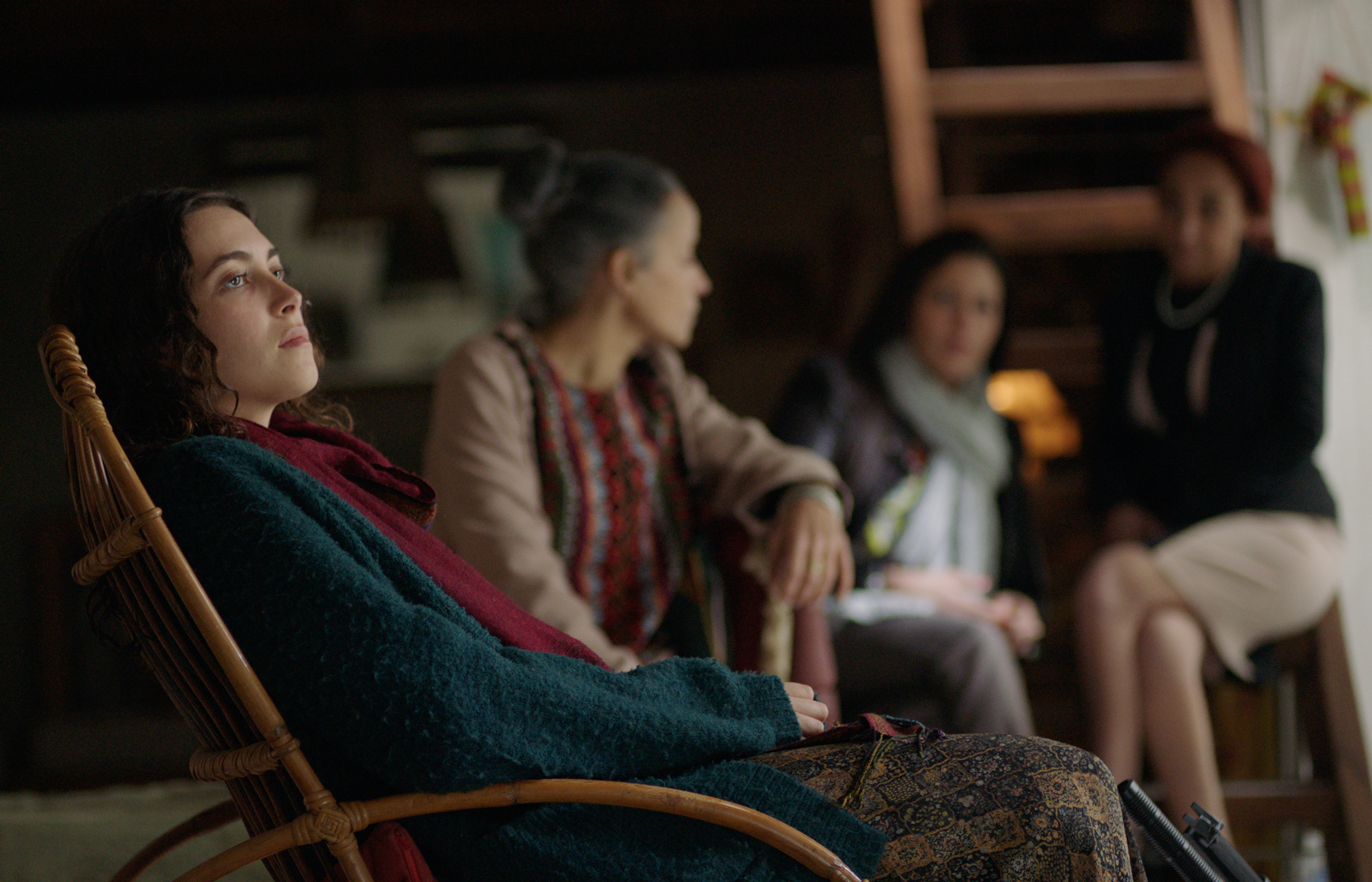If you wish to watch a film that shows women as victims, then Nouri Bouzid’s ‘The Scarecrows’ is not for you. After premiering at the Venice Film Festival in September, this latest work from the Tunisian filmmaker known for his sensitive treatment of difficult issues, ‘The Scarecrows’ has been picked to open the Carthage Film Festival in Tunisia on October 26th. It is a film that places us face to face with the consequences of defining our fellow humans as “the Other”.
In Europe, there is often some passing mention on the news of one girl or another who joined ISIS and then was arrested in her home country trying to return from that hell. I’ll admit, I’ve seen it so often, I have even been guilty of changing the channel. Yet no film was made to describe the torment and humiliation of their attempt to make amends for their actions — probably the result of being teenage girls and not possessing the tools to know better, hence do better. I mean, if I personally had to pay for my teenage mistakes, I probably should be locked up for life! I’m sure you feel the same way about your childhood faults…
No film was made — until now that is. Bouzid not only tackles the subject in ‘The Scarecrows’ but rubs our nose in it and films it so up close and personal that we can’t avoid leaving the theater shaken and changed. And cinema that changes, us and the world around us, is what I crave to watch.
The film stars the most spellbinding Tunisian actress who ever lived, Afef Ben Mahmoud in the role of Nadia, an activist lawyer. If that sounds like a broad statement on my part it is, because she is not only beautiful on the outside, but also smart and incredibly kind — a true gem of a human being. ‘The Scarecrows’ is set in Tunis in 2013 and features the story of two young women, Zina (Nour Hajri) and Djo (Joumene Limam) who have just returned from Syria after having been lured there by a network of human traffickers so well organized it also includes the Troika government elected in 2011. They were lured to the frontlines of ISIS as wives of the fighters, but once there, were instead passed around as sex partners, used and abused by several men.
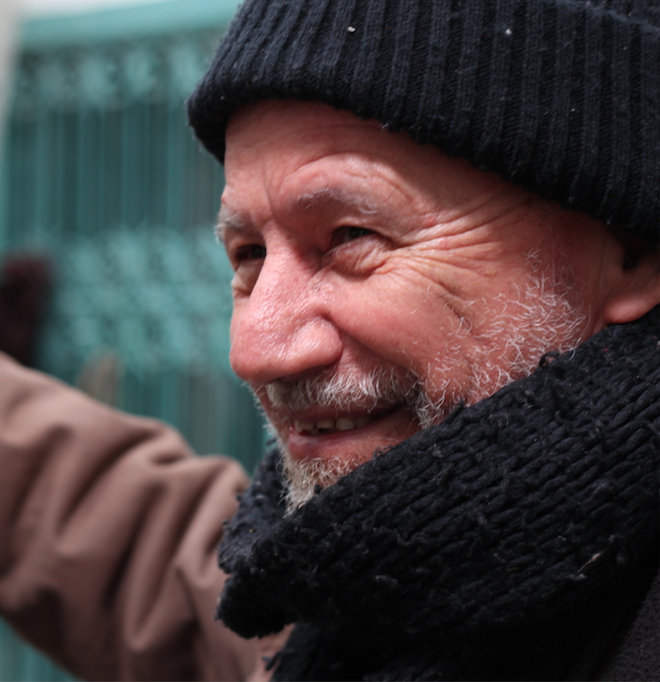
Bouzid himself describes this phenomenon best:
“The jihad nikah phenomenon feeds rumors and imagination. This form of jihad consists of women traveling to the war front to alleviate the sexual needs of jihadists, which they accomplish by repeatedly changing husbands through customary marriage, all to make the process appear halal. A fatwa incites the women to go to the war zone, and promises them Paradise. Their departure from Tunisia is organized at every level, via a network of charity associations financed by Gulf countries, with the blessing of the Troika, the coalition government that was in power in Tunisia until the end of 2013.” — from Nouri Bouzid’s Director’s Statement for ‘The Scarecrows’
Once back in Tunis, it is no surprise that Zina and Djo are treated as pariahs, shunned by their families and despised by society, which views them as enemies and “used” women. And yet, what makes the film brilliant is that at the core of ‘The Scarecrows’ there isn’t the theme of these girls as victims, rather the idea of this network of support that they are offered, made almost entirely of women — doctors, lawyers, activists. It is this wonderful notion of women helping women, of us rallying to the side of those who need our help that captured my heart in Venice. And it has not let go since.
I caught up with Khalil Benkirane and Afef Ben Mahmoud who also co-produced the film together, in Venice. It was a lovely meeting that managed to explain a lot more about the film, including the original method of filming employed by the DoP Hatem Nechi, under Bouzid’s supervision, which puts us quite literally in the skin of the protagonists. And that’s not always an easy place to be!
When did this project come on your radar?
Afef Ben Mahmoud: I have known of this project since 2014, just as an actress. I had already worked on another project with Nouri, we’d become friends. I saw that he struggled a lot in producing it, and now we’re the producers on this project as well. When I built my company in Tunisia, I went to his producer at the time and said “can I maybe co-produce? Can I help?” And he said, “Unfortunately I have my hands full now and I need to postpone it but if you ready to produce it now, I’ll pass it on to you!” So I discussed that with Khalil and he said do it.
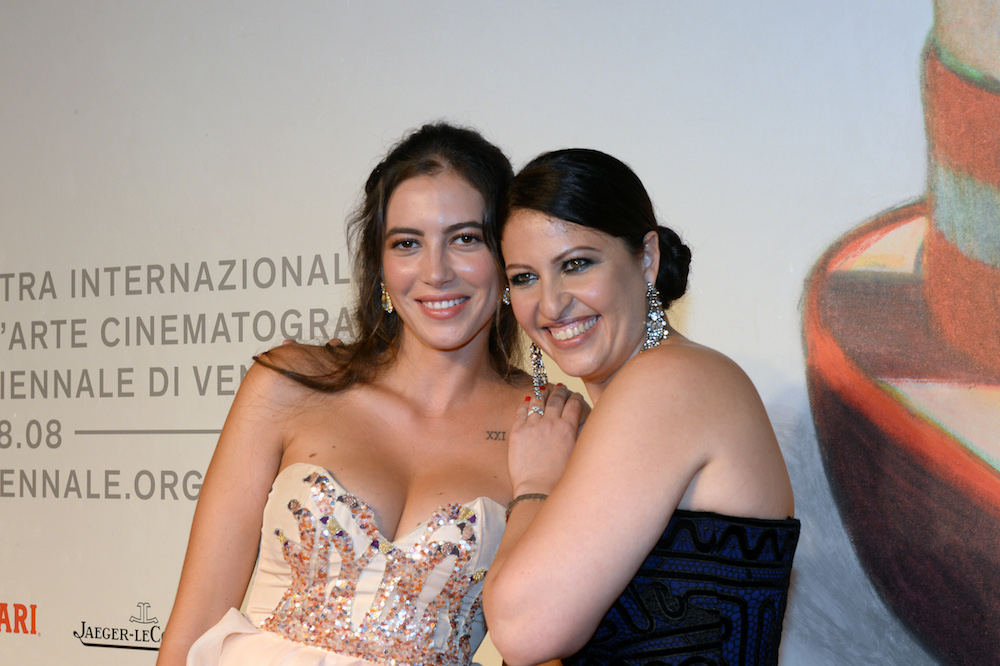
I was the producer in the beginning, but we struggled a lot because January was the rush time in Tunisia for TV series for Ramadan, so we couldn’t find a single camera. It was really hard to find the crew and that’s how Khalil joined the production. And he saved my life.
Then you come in, this Prince Charming of cinema, who comes to save the day. How did you save the day?
Khalil Benkirane: Basically, there were issues getting equipment, then Afef found the equipment, but then she lost it because the guy behind the company got a better deal and decided to go with somebody else. At that point Afef was totally depressed and said, “we stop everything.” I responded: “We cannot back off, we have to continue.”
So I was lucky to have met a person in Cannes who had a camera equipment company and for whatever reason, as soon as Afef told me about our situation, I thought about him. I meet so many people, but I don’t remember how, maybe because he was a nice person. I contacted the person and we managed to rent the equipment from him from Paris and the shoot started the next day.
Tell me about working with the special camera, a special lens that was used which required very close-up shots?
Ben Mahmoud: In the two years before the film was made, because Nouri was thinking he would never ever do this movie — he started writing a book. A five hundred page book about cinema. The book is about what is inside and outside of the frame. And when the opportunity finally came and he managed to make his movie, he decided to shoot everything in 85 mm lens. To push and do what he was trying to say in the book. Don’t explain to the spectator everything, make them dream and let them see what they want to see. He focused only on the subject and what is essential. The rest, you can build it in your mind.
So he shot the whole movie in 85 mm.
This required a real closeness….
Benkirane: Imposed.
Yes imposed, you’re right.
Benkirane: I say imposed because basically everything is in focus within a specific close distance. Everything before that is out of focus and everything after it is also out of focus. And that’s why he wanted to use that lens to really make us feel “dans la peau des personnages?” — in the skin of the characters.
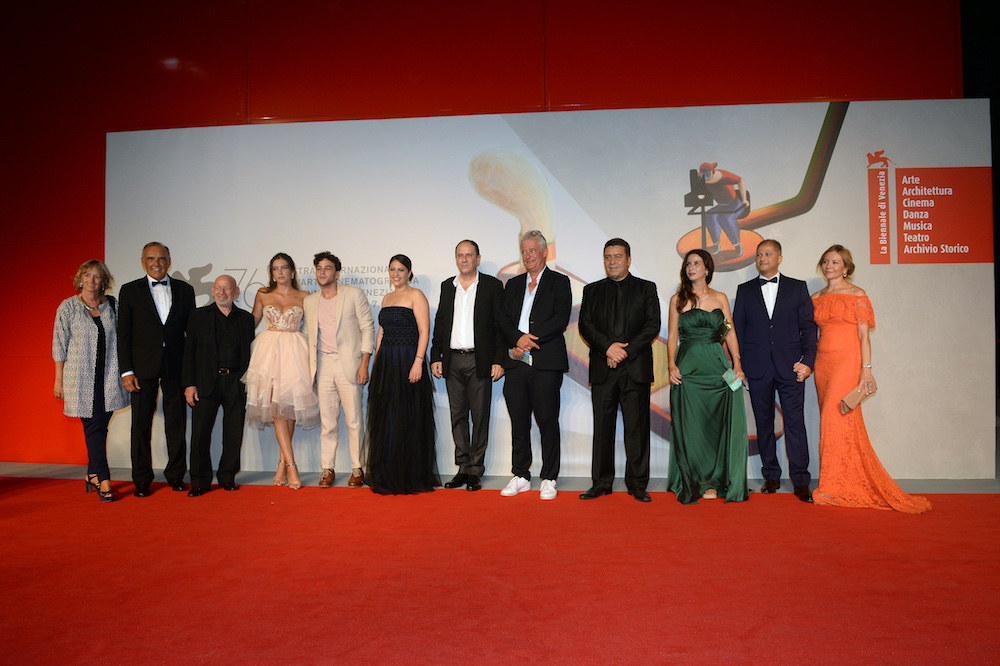
It was a handheld camera as well, which is also quite tricky because it can take the spectator on this rollercoaster journey.
Ben Mahmoud: And good at the same time, because the characters were struggling and were suffocating, so he tried to make the spectator feel what the characters were feeling. That’s why we are very close so you can feel suffocating, and at the same time we are lost, so Nouri makes you feel lost too, and this movement of camera all around draws you in.
He was trying with his camera to make you feel what his character is feeling.
Benkirane: It is important to mention that Nouri Bouzid has always been a master of “mise en scène.” When you look at his previous films usually his shots last three, four minutes and it’s a very carefully crafted harmony of movements of the characters within the space while the camera is moving. All of that was done then mostly with rails and in his recent films, he would at time use a hand held camera. But in this film, he only shot with a hand held camera. There was no tripod on set.
How was it from the acting side? Because you have this camera which is constantly in your vision…
Ben Mahmoud: It’s funny because we felt like the camera was so close to us but it really wasn’t, because of the lens. I felt at times that my mouth was touching the cheek of my co-star. It was a combination of being concentrated, being that close to your friend, and still needing to act. It was not easy.
You had to reinvent a language for yourself I imagine…
Ben Mahmoud: It was very strange, especially to be that close to someone else because in real life you’re not supposed to be that way. When we act, we put ourselves in situations and live them, but this is not a normal, not in a real life situation I mean. In real life it’s not logical. So you had to find a new logic in your mind to keep going and feel natural.
Where do you wish the film to go?
Benkirane: In Tunisia the film is really anticipated so we think it’s going to do very well. Because most people are familiar with Nouri Bouzid’s cinema — this is his eighth film — and every film has tackled an issue that is taboo or disturbing. Tunisians love watching movies and especially in the past few years with the abundance of good cinema from Tunisia people go out and films do very well in the movie theaters.
From what all the sales agents have told us, it’s not really a film that will do well in theaters in other countries. I don’t think a distributor will take the risk of generating 50 DCP’s and releasing them in fifty theaters at once because the approach and subject are a little hard. In terms of form, what I’m realizing is that people are not ready — for me this is in form an intellectual cinema — and today mainstream cinema is rarely intellectual. We’ve gotten to a level where everything is spoon fed but I think it will do well in festivals and I’m hoping that the director can be there.
I mean what was surprising at the end of the world premiere screening in Venice was that when we stepped outside and asked friends “what did you think?” they were all pointing to the fact that when they heard Nouri speak after the screening it all made sense, even what they had questioned during the film. At that moment they were like “wow, what a great film!” So that discussion was necessary and that is why I am hoping the director and us tour with the film.
Ben Mahmoud: What I’m hoping is that the film can be shown as much as possible, all around the world. Because the subject is very important and to me the subject is touching not only Tunisians or Arab people. For me it’s more general because we’ve been seeing girls from France, girls from Russia, from the UK going to Syria and then attempting to come back. And I don’t know how or why the subject of them coming back is such a taboo subject. Nobody is talking about it. We always talk about going to Syria but coming back remains a taboo.

